Have you ever tried to insert a filler gun into the tank with your bare hands when it's cold outside? Or have you connected an electric car's charge cable to the charging port? Also, can you plug in a mobile phone charger in the dark?
Overall, things are easier with phones. Many devices marketed in the last 2-3 years have wireless charging facilities. For instance, electric toothbrushes have been using induction wireless charging as the main way to charge the device over the years. However, transport still requires getting out of the car > taking out the cable > opening the charging port > inserting the charging gun... and then repeating the process.
Meredot, a company with Chernihiv and Oregon roots, strives to make charging for personal electric vehicles faster and more convenient. The company's founder, Ukrainian Roman Bysko, and his team have created a wireless energy transfer technology that allows you to charge powerful devices at a distance of up to 30 cm.
The company started with the idea of a contactless socket, which evolved into a universal charging station for small electric vehicles.
How did Meredot improve its technology? How does it plan to capture the e-transport market? Read in our story.
The story of Meredot is a part of the series "The Cream of the Crop of Ukrainian Cleantech". It features 10 cleantech champions who received Climate Innovation Vouchers at a critical stage of their development. Climate Innovation Vouchers is one of the largest grant programs in Ukraine for innovators in green and climate-friendly technologies. It was initiated by the European Bank for Reconstruction and Development and funded by the European Union. Greencubator implements the program in Ukraine.
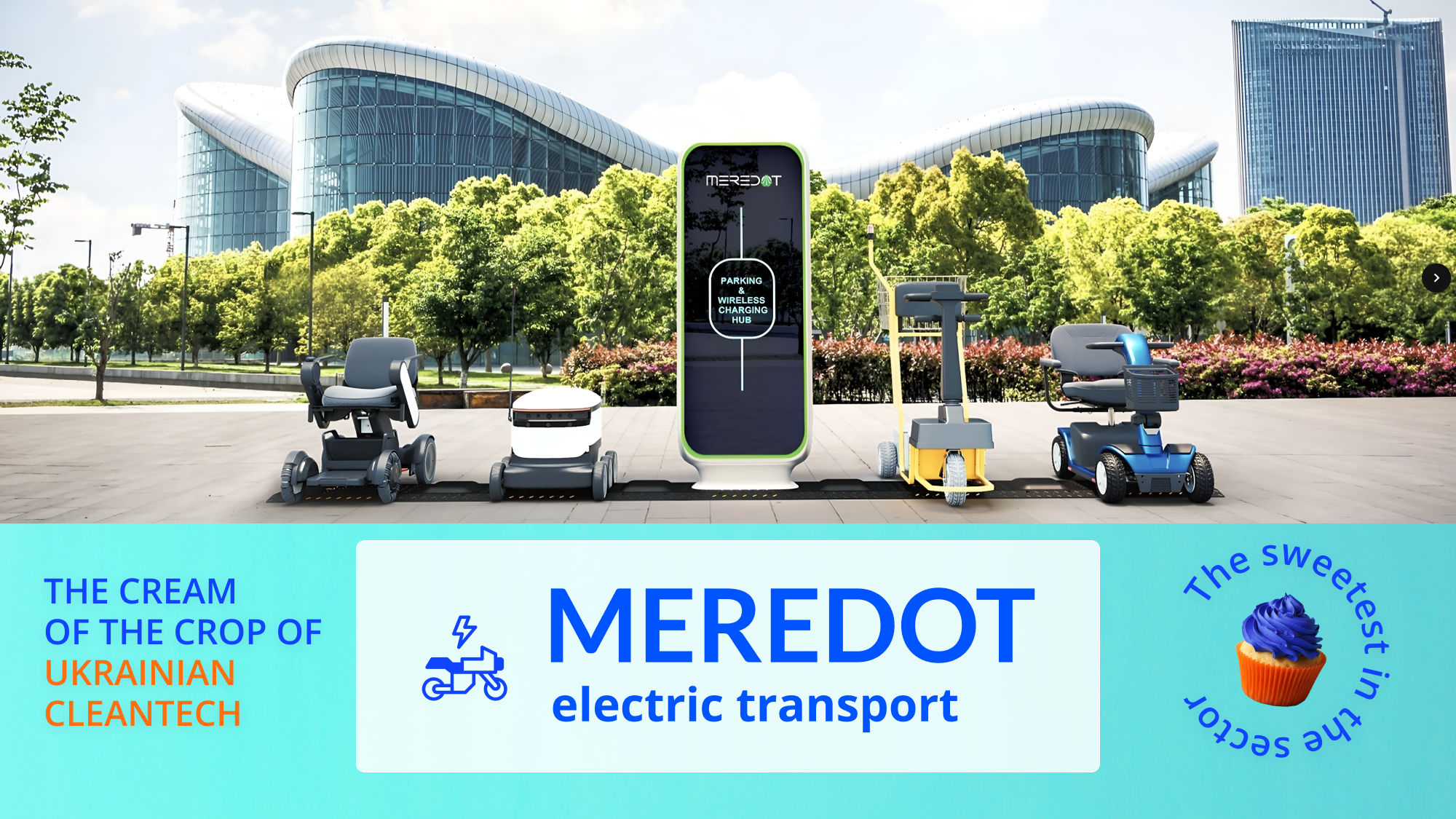
Wireless power transfer
Can EV charging be as simple and easy as charging a standard car? Seems like the developers of wireless charging stations have the solution. One of them is Ukrainian entrepreneur and founder of Meredot Roman Bysko.
Roman and his team have created cutting-edge technology — wireless energy transmission with a power of 11,000 watts. This innovation allowed the company to develop a universal charger for small electric vehicles.
«The unique feature of our technology is its ability to charge a device at a height of up to 30 cm. It makes us stand out from competitors, as we can service vehicles with different ground clearance. Basically, we can charge any electric vehicle at our station if it is equipped with our receiver unit», — explains Roman.

(An illustration of how Meredot's wireless charging technology works)
To charge an electric vehicle with Meredot, it simply needs to have a particular receiver installed. The charging station can be built into the road surface or even placed under the asphalt. The company says that even if the system is covered with snow or ice, charging will still work.
Meredot's product evolution
It took Meredot sometime before the company came to wireless charging for light electric vehicles. It all started in 2017 when the startup used its wireless power transmission technology to develop a safe magnetic socket.
This device worked similarly to Apple's MagSafe magnetic wireless charger. Unlike the usual sockets, where devices are connected to an electric plug, Meredot used electromagnetic induction to transmit electricity. Thus, the plug is magnetised to the socket, making it safe, particularly for children. The prototype of the electrical outlet cost the team just $500.
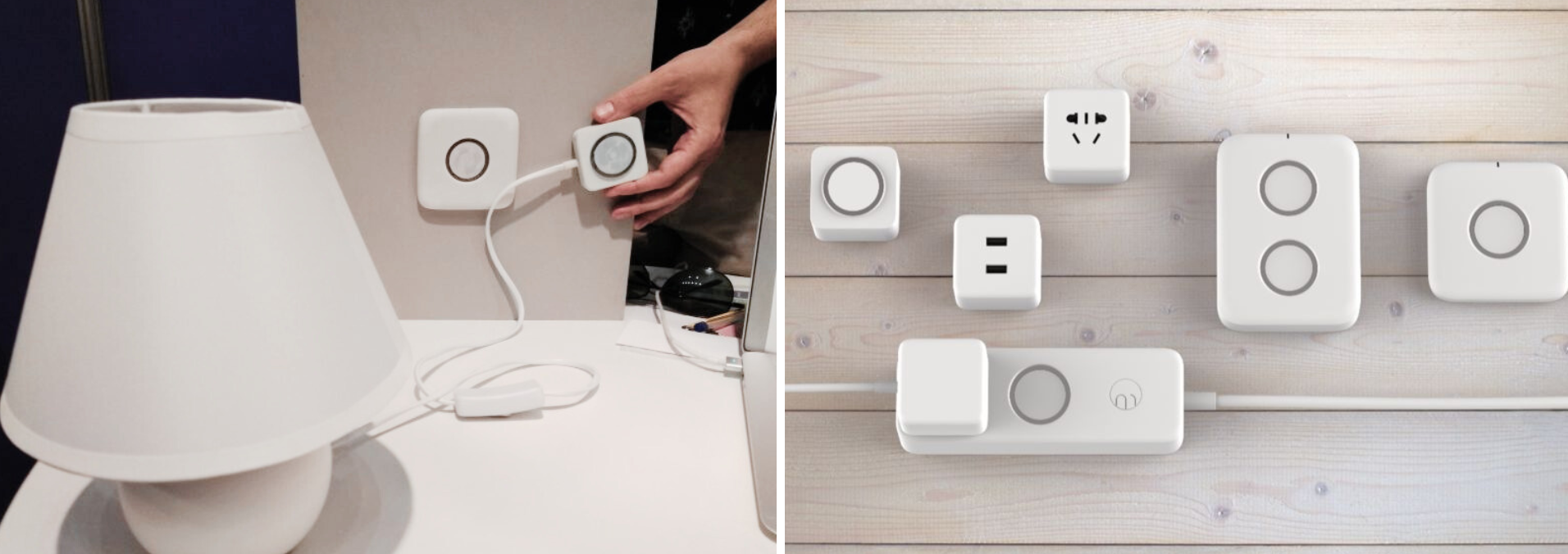
(The first product from Meredot was a contactless magnetic socket)
Roman Bysko says that when the startup presented its contactless socket on the European market, it did not succeed. So, the team shifted focus and created a wireless charging station for electric scooters. This project switch resulted in the company's first investment:
-
In 2019, Meredot closed an angel round and received funding from CYFRD Frontech Investments.
-
In the same year, Meredot secured its first €50,000 grant from the European Commission under the Horizon 2020 programme. This helped improve the wireless technology for the future charging station.
-
In 2020, the startup joined the Overkill accelerator, and within three months, the team developed a prototype charger for electric scooters.
-
In the seed funding round, with Overkill as the lead investor, Meredot raised $320,000.
Meredot's new system consisted of a wireless charging station (parking pad and control panel) and a receiver unit installed directly into the e-transport. Thus, as soon as the e-scooter was parked on the platform, it started charging automatically.
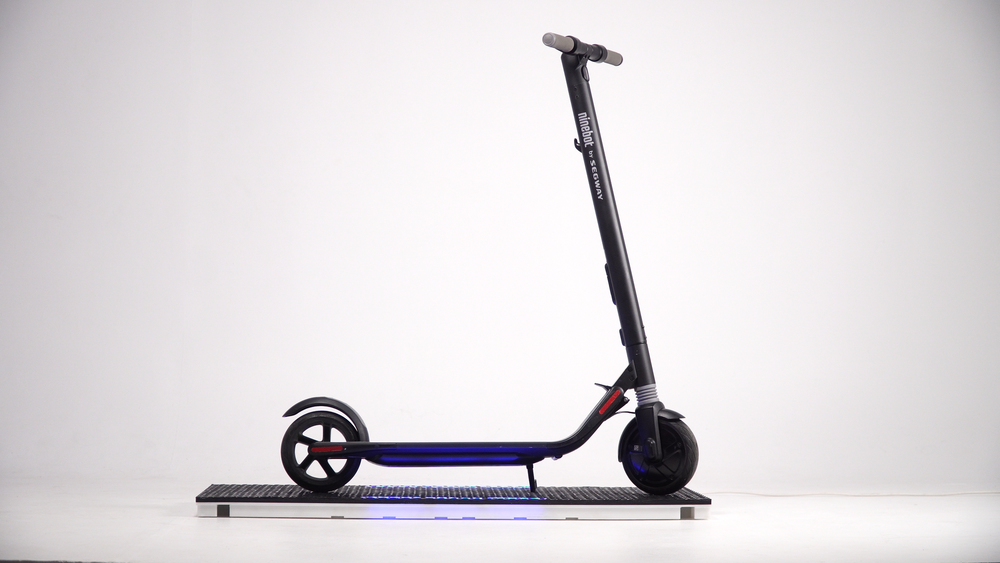
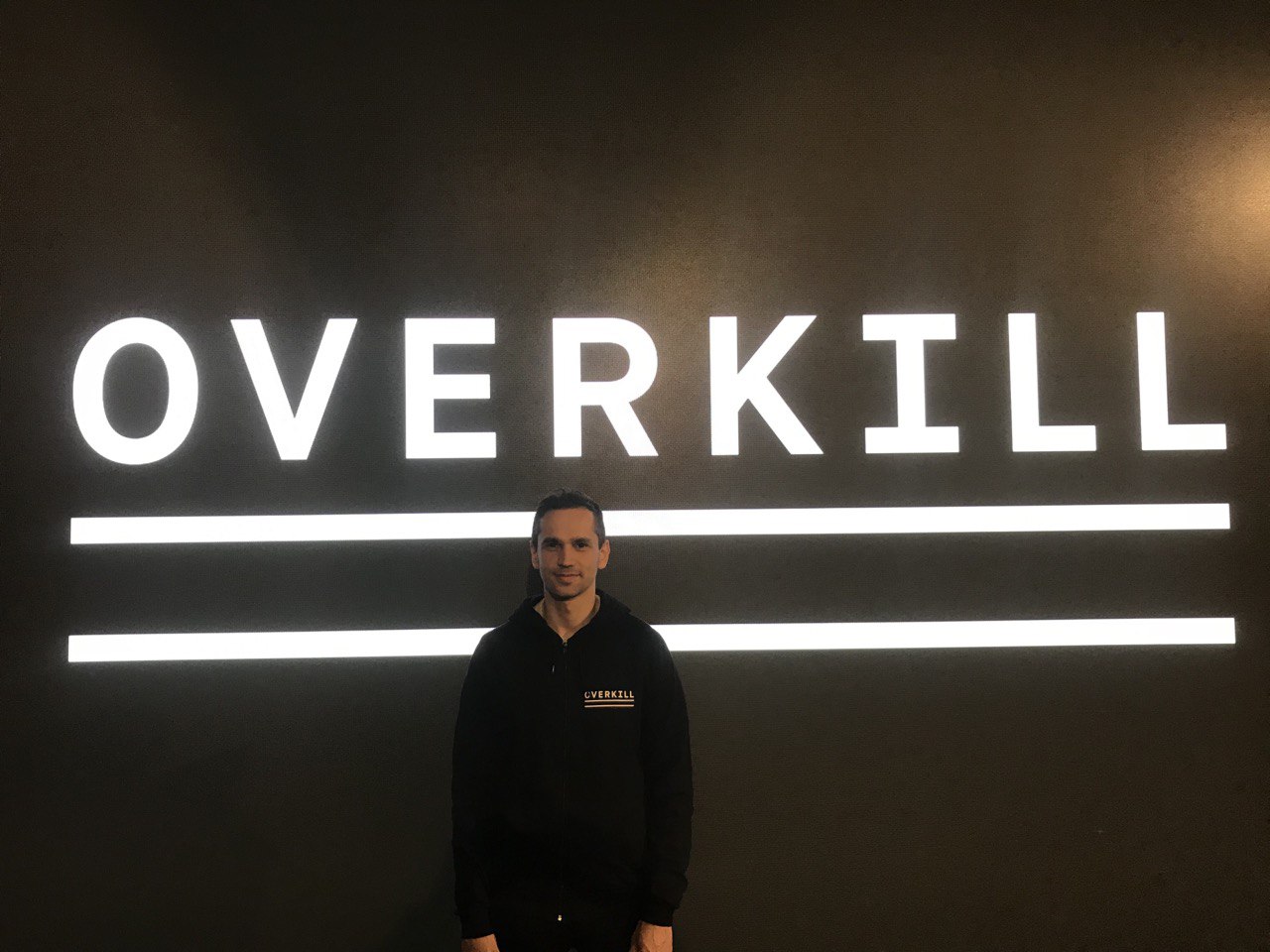
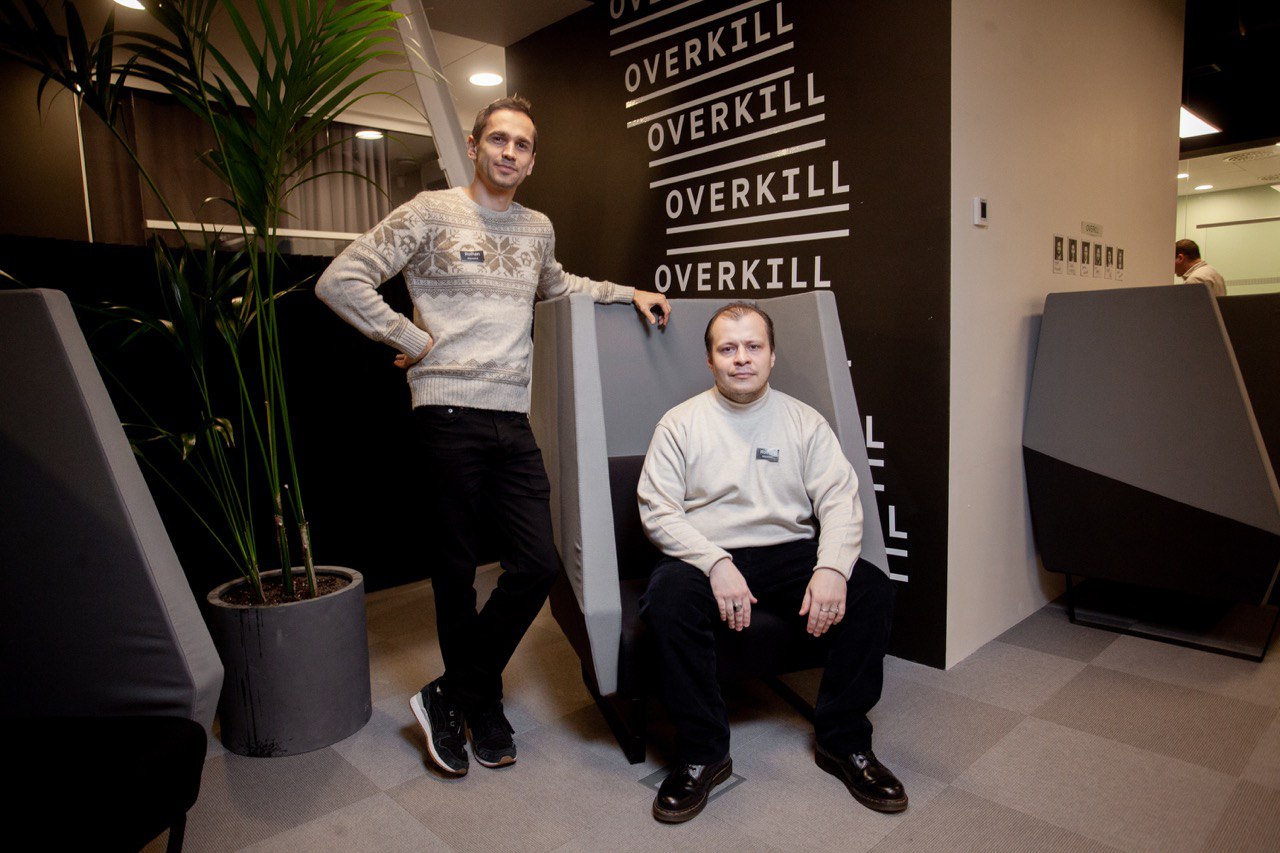
(The second iteration of Meredot's product was a wireless charging station for e-scooters)
Meredot has developed its contactless chargers for electric scooters, focusing on B2B customers. Major rental market players such as Bird, Lime, and Bolt can purchase and install such stations in their public parking areas. Such a move would save time on servicing this type of electric transport.
With this solution, Meredot launched pilot projects with City Zone in Israel and Z Move in Italy and received its first customers. However, the company took further steps to develop this product.
«In 2022, we visited the CES technology exhibition in the US and discovered that the micro-mobility market is much wider than e-scooters. We met a company that produced electric robots for food delivery, golf carts, and wheelchairs. So we discovered new business opportunities for ourselves», — recalls Roman Bysko.
Therefore, the Meredot team decided to make a further iteration of their charging station to cover even more types of electric vehicles. For this purpose, the startup applied for and obtained several grants for entrepreneurs.
At this stage, Meredot also received funding from the Climate Innovation Voucher programme, which the company won in 2022, receiving a grant to improve its product. This project is funded by the EBRD with the support of the EU and implemented in Ukraine by the NGO Greencubator.
«With the support of funds and grants, we purchased the necessary details, conducted R&D, designed a prototype, and tested it. Due to the provided funding, we have a new version of our charging station today», — says Roman Bysko.
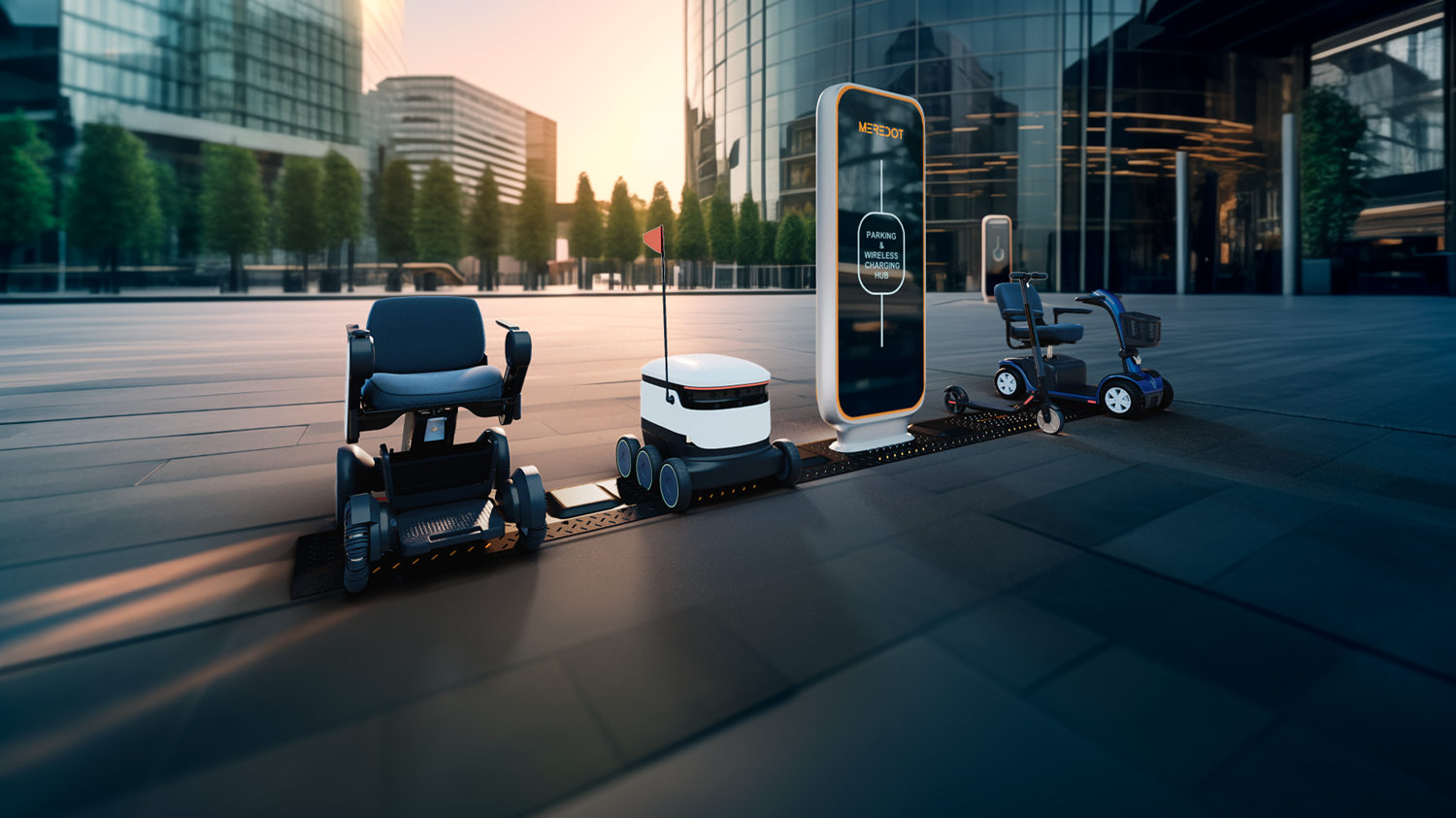
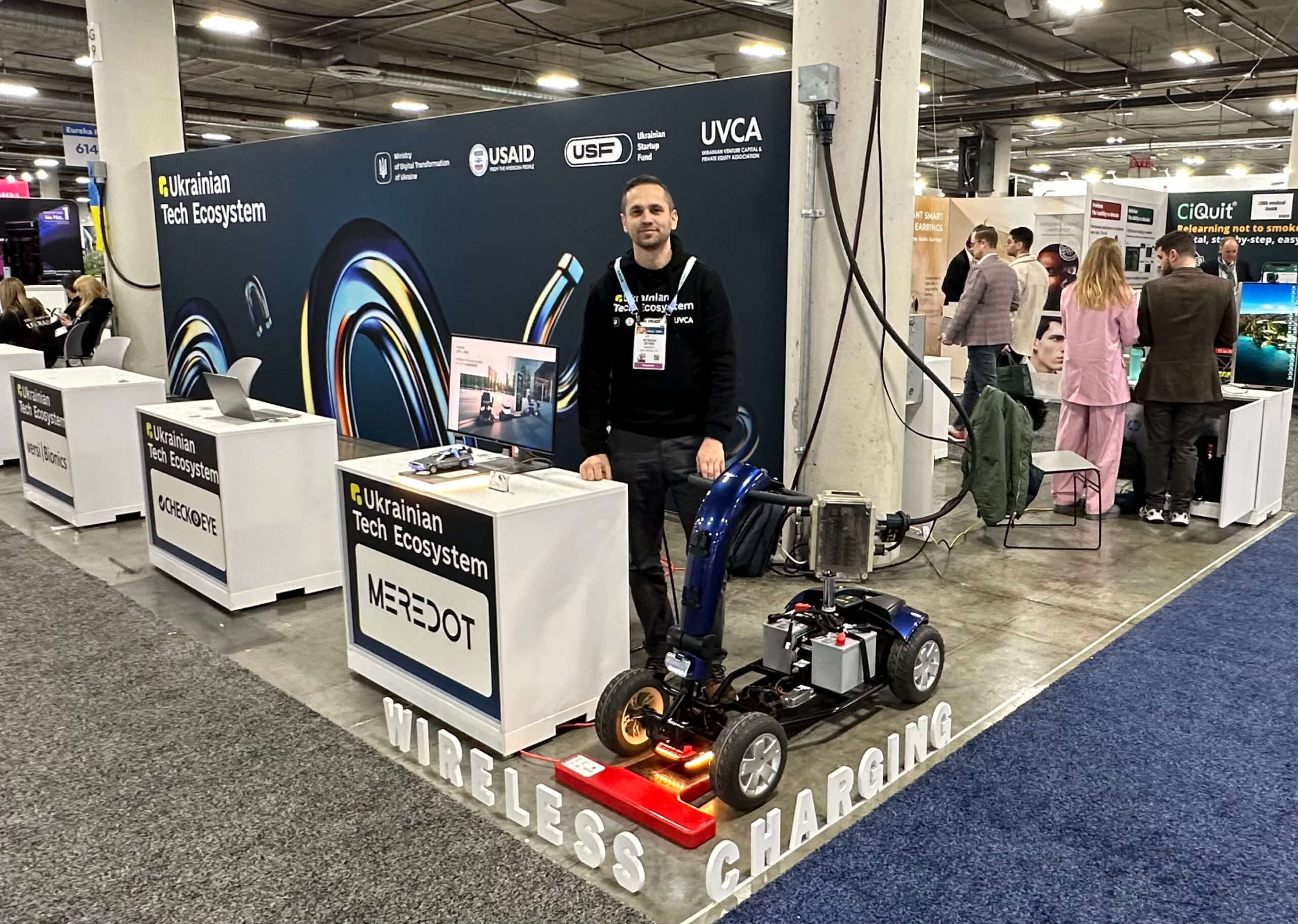
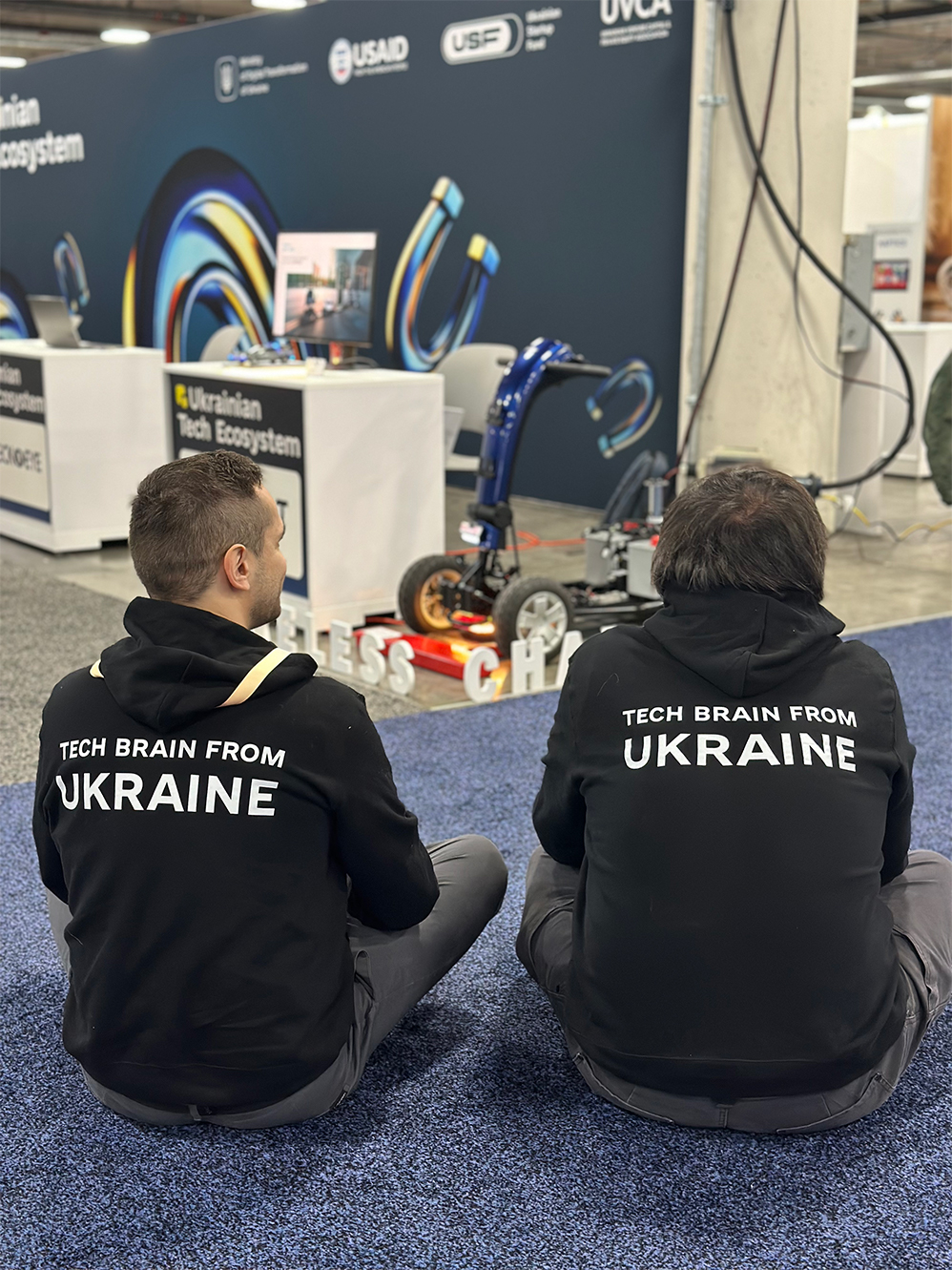
(The third iteration of Meredot is a universal wireless charging station for small EVs)
How Meredot intends to take over the market
Meredot has implemented pilot projects in Italy and France with their universal charging station, although the company found its main customers in the United States. Thus, in 2024, the company is launching a significant cooperation with the American hypermarket chain Walmart and a manufacturer of electric trolleys.
«In the US, stores have electric trolleys — shopping carts. Customers take them and drive around the store, collecting the necessary goods in a built-in basket. There are about 100,000 of them in the United States. We will equip all those carts with our receivers to charge them at our stations», — says Roman.
In 2023, Meredot got into the famous American accelerator Techstars Alabama EnergyTech. Techstars also invested $120,000 in the company's development.
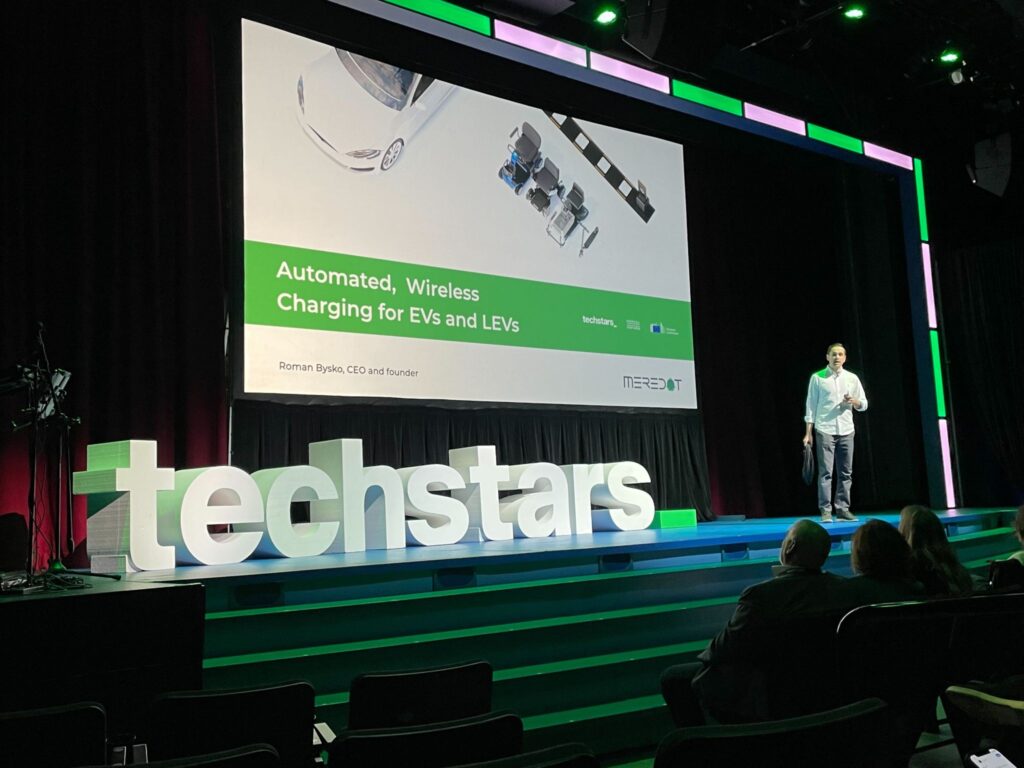
(Meredot CEO Roman Bysko has passed the Techstars Alabama EnergyTech accelerator)
Thanks to Techstars, the company has significantly expanded its vision of where it can grow. Its focus now lies on electric vehicles. Meredot intends to enter this market with its new product — EV charging robots. How do they work?
Simply, such robots are like a power bank on wheels with wireless charging. The robot drives up to the car, automatically parks under the receiver coil, and starts charging the vehicle. When charging is complete, it moves to another car or returns to its base. Meredot estimates that 2-3 such robots can serve a car park for 100 electric vehicles.
The company plans to release its first robots in 2024. The company also hopes to manufacture stationary contactless charging stations for EVs and even create a wireless electric road to charge vehicles in motion. Such innovations contribute towards establishing a convenient EV infrastructure and encourage people to choose environmentally friendly transport.


ABOUT THE PROJECT
«The Cream of the Crop of Ukrainian Cleantech» is a series of stories about 10 Ukrainian companies that received the Climate Innovation Vouchers grant at a key stage of their development. They've risen to prominence in Ukraine's cleantech sector in a short span. Climate Innovation Vouchers is one of the largest grant programs in Ukraine for innovators in green and climate-friendly technologies. It was initiated by the European Bank for Reconstruction and Development and funded by the European Union. NGO Greencubator implements the program in Ukraine.

